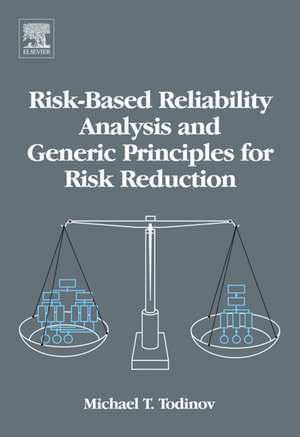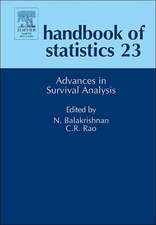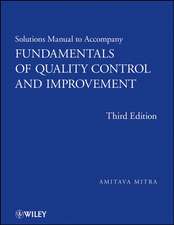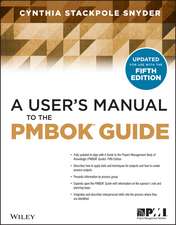Risk-Based Reliability Analysis and Generic Principles for Risk Reduction
Autor Michael T. Todinoven Limba Engleză Hardback – 2 noi 2006
An important theme in the book is the generic principles and techniques for reducing technical risk. These have been classified into three major categories: preventive (reducing the likelihood of failure), protective (reducing the consequences from failure) and dual (reducing both, the likelihood and the consequences from failure). Many of these principles (for example: avoiding clustering of events, deliberately introducing weak links, reducing sensitivity, introducing changes with opposite sign, etc.) are discussed in the reliability literature for the first time.
Significant space has been allocated to component reliability. In the last chapter of the book, several applications are discussed of a powerful equation which constitutes the core of a new theory of locally initiated component failure by flaws whose number is a random variable.
- Offers a shift in the existing paradigm for conducting reliability analyses
- Covers risk-based reliability analysis and generic principles for reducing risk
- Provides a new measure of risk based on the distribution of the potential losses from failure as well as the basic principles for risk-based design
- Incorporates fast algorithms for system reliability analysis and discrete-event simulators
- Includes the probability of failure of a structure with complex shape expressed with a simple equation
Preț: 951.33 lei
Preț vechi: 1160.16 lei
-18% Nou
Puncte Express: 1427
Preț estimativ în valută:
182.03€ • 190.57$ • 150.62£
182.03€ • 190.57$ • 150.62£
Carte disponibilă
Livrare economică 15-29 martie
Livrare express 04-08 martie pentru 42.37 lei
Preluare comenzi: 021 569.72.76
Specificații
ISBN-13: 9780080447285
ISBN-10: 0080447287
Pagini: 400
Dimensiuni: 165 x 240 x 26 mm
Greutate: 0.78 kg
Editura: ELSEVIER SCIENCE
ISBN-10: 0080447287
Pagini: 400
Dimensiuni: 165 x 240 x 26 mm
Greutate: 0.78 kg
Editura: ELSEVIER SCIENCE
Public țintă
This book is suitable for all students studying risk analysis, reliability and mechanical engineering. Also for risk analysts, reliability consultants, lecturers and practising reliability engineers. It is also suitable for engineering students, reliability and risk practitioners.Cuprins
Chapter 1: RISK-BASED RELIABILITY ANALYSIS: A POWERFUL ALTERNATIVE TO THE TRADITIONAL RELIABILITY ANALYSIS
Chapter 2: BASIC RELIABILITY CONCEPTS AND CONVENTIONS USED FOR DETERMINING THE LOSSES FROM FAILURES
Chapter 3: METHODS FOR ANALYSIS OF COMPLEX RELIABILITY NETWORKS
Chapter 4: PROBABILISTIC RISK ASSESSMENT AND RISK MANAGEMENT
Chapter 5: POTENTIAL LOSS FROM FAILURE FOR NON-REPAIRABLE COMPONENTS AND SYSTEMS WITH MULTIPLE FAILURE MODES
Chapter 6: LOSSES FROM FAILURES FOR REPAIRABLE SYSTEMS WITH COMPONENTS LOGICALLY ARRANGED IN SERIES
Chapter 7: RELIABILITY ANALYSIS OF COMPLEX REPAIRABLE SYSTEMS BASED ON CONSTRUCTING THE DISTRIBUTION OF THE POTENTIAL LOSSES
Chapter 8: RELIABILITY VALUE ANALYSIS FOR COMPLEX SYSTEMS
Chapter 9: RELIABILITY ALLOCATION BASED ON MINIMISING THE TOTAL COST
Chapter 10: GENERIC APPROACHES TO REDUCING THE LIKELIHOOD OF CRITICAL FAILURES
Chapter 11: SPECIFIC PRINCIPLES FOR REDUCING THE LIKELIHOOD OF FAILURES
Chapter 12: REDUCING THE RISK OF FAILURE BY REDUCING THE NEGATIVE IMPACT FROM THE VARIABILITY OF DESIGN PARAMETERS
Chapter 13: GENERIC SOLUTIONS FOR REDUCING THE LIKELIHOOD OF OVERSTRESS AND WEAROUT FAILURES
Chapter 14: REDUCING THE RISK OF FAILURE BY REMOVING LATENT FAULTS, AND AVOIDING COMMON CAUSE FAILURES
Chapter 15: CONSEQUENCE ANALYSIS AND GENERIC PRINCIPLES FOR REDUCING THE CONSEQUENCES FROM FAILURES
Chapter 16: LOCALLY INITIATED FAILURE AND RISK REDUCTION
APPENDIX: MONTE CARLO SIMULATION ROUTINES USED IN THE ALGORITHMS FOR RISK-BASED RELIABILITY ANALYSIS
REFERENCES
INDEX
Chapter 2: BASIC RELIABILITY CONCEPTS AND CONVENTIONS USED FOR DETERMINING THE LOSSES FROM FAILURES
Chapter 3: METHODS FOR ANALYSIS OF COMPLEX RELIABILITY NETWORKS
Chapter 4: PROBABILISTIC RISK ASSESSMENT AND RISK MANAGEMENT
Chapter 5: POTENTIAL LOSS FROM FAILURE FOR NON-REPAIRABLE COMPONENTS AND SYSTEMS WITH MULTIPLE FAILURE MODES
Chapter 6: LOSSES FROM FAILURES FOR REPAIRABLE SYSTEMS WITH COMPONENTS LOGICALLY ARRANGED IN SERIES
Chapter 7: RELIABILITY ANALYSIS OF COMPLEX REPAIRABLE SYSTEMS BASED ON CONSTRUCTING THE DISTRIBUTION OF THE POTENTIAL LOSSES
Chapter 8: RELIABILITY VALUE ANALYSIS FOR COMPLEX SYSTEMS
Chapter 9: RELIABILITY ALLOCATION BASED ON MINIMISING THE TOTAL COST
Chapter 10: GENERIC APPROACHES TO REDUCING THE LIKELIHOOD OF CRITICAL FAILURES
Chapter 11: SPECIFIC PRINCIPLES FOR REDUCING THE LIKELIHOOD OF FAILURES
Chapter 12: REDUCING THE RISK OF FAILURE BY REDUCING THE NEGATIVE IMPACT FROM THE VARIABILITY OF DESIGN PARAMETERS
Chapter 13: GENERIC SOLUTIONS FOR REDUCING THE LIKELIHOOD OF OVERSTRESS AND WEAROUT FAILURES
Chapter 14: REDUCING THE RISK OF FAILURE BY REMOVING LATENT FAULTS, AND AVOIDING COMMON CAUSE FAILURES
Chapter 15: CONSEQUENCE ANALYSIS AND GENERIC PRINCIPLES FOR REDUCING THE CONSEQUENCES FROM FAILURES
Chapter 16: LOCALLY INITIATED FAILURE AND RISK REDUCTION
APPENDIX: MONTE CARLO SIMULATION ROUTINES USED IN THE ALGORITHMS FOR RISK-BASED RELIABILITY ANALYSIS
REFERENCES
INDEX
Recenzii
"The referee finds this book quite interesting and recommends to the students of reliability and researchers to have a closer look at it so that further research can be initiated to develop tools hitherto were not possible and a realist approach to risk-based reliability design of systems is possible. This book should be a good addition to a library of books on reliability and risk." --International Journal of Performability Engineering








